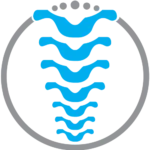Suffering from a pinched nerve can be a debilitating experience, marked by pain, numbness, or discomfort that affects your daily life. The good news is that pinched nerves are relatively common injuries that can be dealt with through traditional medicine and alternative approaches, such as chiropractic care. Chiropractic care represents a holistic and non-invasive option, focusing on the body’s musculoskeletal structure to address the root causes of nerve compression.
This detailed guide explores how chiropractors can help with pinched nerves, detailing their techniques, the benefits of chiropractic treatment, what to expect during a visit at our Denver or Lakewood clinic, alternative therapies, and considerations for deciding if chiropractic care is the right choice for you.
How Can Chiropractors Help with Pinched Nerves?
Chiropractors utilize a variety of techniques to alleviate the discomfort caused by pinched nerves, primarily focusing on spinal manipulation and adjustment. This technique involves applying a controlled force to the spine’s vertebrae that are not functioning properly or are misaligned. By restoring these vertebrae to their proper position, chiropractors can relieve the pressure on the nerves, thereby addressing the root cause of the pain. Additionally, soft tissue therapy is employed to relax and treat muscles that may contribute to nerve compression. These methods aim to improve mobility and reduce discomfort.
Moreover, chiropractors often recommend specific exercises and stretches that patients can perform at home to strengthen the muscles supporting the spine, enhancing flexibility and preventing future occurrences of pinched nerves. The role of chiropractic care extends beyond immediate relief, focusing on reducing inflammation and promoting the body’s natural healing processes.
Benefits of Chiropractic Treatment for Pinched Nerves
One of the most appealing aspects of chiropractic treatment for pinched nerves is its non-invasive nature, offering a viable alternative to surgical interventions. This aspect is particularly attractive for those seeking solutions that do not involve incisions or extended recovery periods. Furthermore, chiropractic care often reduces the need for medication, particularly pain relievers and anti-inflammatories, thereby minimizing the risk of side effects associated with long-term drug use.
Chiropractic treatment also emphasizes holistic healing, focusing not just on symptomatic relief but on the prevention of future injuries. By addressing the mechanical and structural aspects of the body, chiropractors help ensure that the body functions as optimally as possible, reducing the likelihood of recurring issues. This preventative approach, combined with the treatment’s non-invasive nature and the potential to reduce dependency on medication, underscores the holistic benefits of chiropractic care for individuals suffering from pinched nerves.
What to Expect During Your Chiropractic Visit
Upon your first chiropractic visit, you will undergo an initial consultation and examination. This typically involves a thorough review of your medical history, a physical examination, and possibly diagnostic tests to accurately diagnose the cause of your pinched nerve. Based on these findings, your chiropractor will develop a personalized treatment plan tailored to your specific needs. This plan may include a combination of in-office treatments and at-home exercises or stretches.
The duration and frequency of treatment sessions vary depending on the individual’s condition and response to treatment. Your chiropractor will discuss what you can expect in terms of treatment timeline. To prepare for your visit, it’s advisable to wear comfortable clothing and prepare any questions or concerns you might have about your treatment plan. Bringing a list of your current medications and any previous treatments for your condition can also be helpful for your chiropractor to design the most effective care plan.
Alternative and Complementary Therapies
In addition to chiropractic care, there are several other treatments for pinched nerves that can offer relief. Physical therapy, for instance, focuses on strengthening and stretching the muscles surrounding the affected nerve, which can help alleviate pressure. Massage therapy can also be beneficial in relaxing tight muscles and improving circulation to the affected area. Acupuncture, another alternative therapy, aims to restore the flow of energy through the body by inserting thin needles into specific points, which may help relieve pain and inflammation associated with pinched nerves.
These alternative and complementary therapies can be used in conjunction with chiropractic care to provide a comprehensive treatment plan. By combining different approaches, patients may experience faster relief and more significant improvements in their symptoms. Discussing these options with a healthcare professional can help determine the most effective combination of treatments for your specific situation.
Making the Decision: Is Chiropractic Care Right for You?
Deciding whether chiropractic care is the right option for treating a pinched nerve involves considering several factors, including the severity of your symptoms and your overall health. Some conditions may respond better to chiropractic treatment than others, and certain health issues may necessitate alternative treatments. Consulting with a healthcare professional is crucial to ensure that chiropractic care is suitable for your particular case and to understand the potential risks and benefits.
Before committing to chiropractic treatment, it’s important to ask your chiropractor about their experience with treating pinched nerves, the expected outcomes of treatment, and any possible side effects. Inquiring about the cost of treatment and insurance coverage is also advisable. This discussion can help you make an informed decision about pursuing chiropractic care and set realistic expectations for your treatment journey.
The Best Chiropractic Care in Denver
Chiropractic care offers a promising avenue for individuals suffering from pinched nerves, providing relief through a blend of targeted spinal adjustments, soft tissue therapy, and personalized exercises. Its non-invasive nature and focus on holistic healing not only aim to alleviate immediate symptoms but also to prevent future occurrences. As you consider the best course of action for your health, understanding the comprehensive approach of chiropractic treatment, along with exploring complementary therapies, can empower you to make an informed decision. Ultimately, consulting with a healthcare professional and a chiropractor will help determine the most effective strategy for your specific condition, setting you on a path toward recovery and improved well-being.
For the best chiropractic treatment in Denver, contact Denver Integrated Spine Center. Book an appointment to start dealing with your pinched nerve or back pain today.
Denver Integrated Spine Center has the best chiropractors in Denver and Lakewood. The city’s premier multidisciplinary injury recovery and rehabilitation center. If you’re experiencing chronic back pain, shoulder pain, limited mobility, headaches or neck pain, weakness in your hands, or any other common injuries affecting your musculoskeletal structure, our experienced team of local chiropractors, massage therapists, and medical professionals can help.


